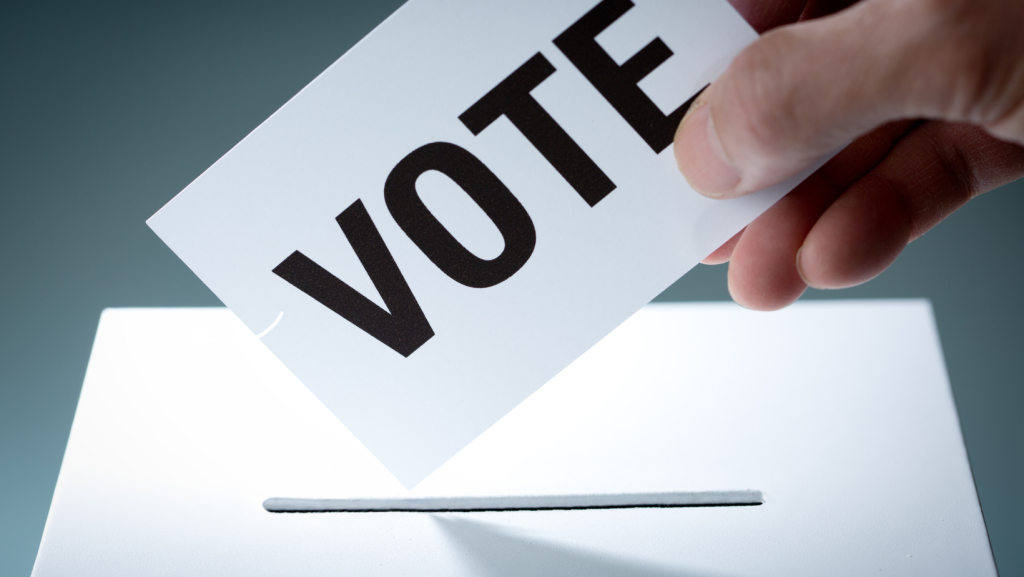Get to know more about the product

Political campaigns and voter outreach have advanced drastically, due to technology. Reaching out with SMS or text messages is a popular and successful approach. This method is convenient and efficient.
It allows candidates to communicate with voters directly. Most people own cell phones, so SMS ensures a wide reach, plus a personalized touch. It’s quicker than traditional advertising.
Real-time engagement is possible, with updates on events, initiatives, or volunteer opportunities. This creates trust and strengthens relationships between candidates and voters.
Plus, two-way communication is enabled. Politicians can get feedback from voters and address any concerns quickly.
SMS is cost-effective compared to TV or radio commercials. It allows politicians with limited budgets to have successful campaigns.
Pro Tip: When using SMS for political campaigns, make the messages concise and powerful. Be aware of timing and frequency – don’t bombard recipients.
Importance of SMS in Political Campaigns and Voter Outreach
SMS has become a must-have for political campaigns and voter outreach. It’s great for connecting with an audience fast and cheaply, as nearly everyone owns a mobile. Politicians can use it to engage with voters directly, delivering messages right into their hands.
In this digital age, SMS is a strategic option for political campaigns and voter outreach. It lets them go around the normal media filters and talk to voters on a personal level. Politicians can send targeted messages to individuals, so their message resonates with the right audience.
SMS in political campaigns has one great advantage: it’s real-time. Messages can be sent and received quickly, with immediate feedback from voters. This two-way communication allows politicians to get data on voter preferences. It also helps create transparency and trust between politicians and constituents.
To make the most of SMS in political campaigns and voter outreach, there are a few tips:
- Personalize messages for demographics or interests.
- Time messages right, when people are likely to check their phones.
- Add clear calls-to-action, such as attending rallies or donating.
SMS can be a powerful tool in political campaigns and voter outreach. It skips traditional media and sends personalized messages to individuals. This helps politicians reach a broad public and creates a genuine connection between them and the electorate.
How SMS is Used in Political Campaigns
SMS, or Short Message Service, is an essential tool in political campaigns. It helps them reach a huge crowd in a flash. With it, politicians can communicate with voters concisely and quickly. Plus, they can spread messages to people’s mobile phones. Through SMS, campaigns can inform people of their policies, events, and updates.
The use of SMS goes beyond mass messaging. It allows candidates to interact with voters on a personal level. They can send them customized texts based on their interests and demographic data. This targeted approach shows citizens that their concerns are valued.
SMS also plays a huge part in voter outreach. Campaigns can send reminders to registered voters about elections or registration deadlines. This ensures citizens are informed and ready to vote. Plus, SMS can be used to urge people to get involved in activities like volunteering or attending rallies.
Don’t miss out on important information this election season. Opt into political campaign SMS updates to stay engaged. You’ll get real-time updates about policy announcements, candidate appearances, and campaign milestones. Join the mobile conversation now and have a say in shaping our nation’s future!
Strategies for Effective SMS Campaigns and Outreach
For a successful SMS campaign, there are six key tactics to think about:
- Targeting messages to certain voter demographics
- Using clear calls-to-action
- Personalizing messages
- Timing them right
- Following regulations
- Utilizing analytics and optimization
These strategies are beneficial as SMS campaigns have high open rates, meaning they have a good chance of being seen and acted upon. An example of this is a recent political campaign. Messages were tailored to different groups of potential supporters with specific concerns. This successfully gained support from undecided voters on election day.
So, for political campaigns and voter outreach, these strategies can help you connect with voters effectively.
Case Studies of Successful SMS Campaigns
SMS campaigns are known to be effective in political and voter outreach. Let’s have a look at some real-life examples of successful SMS campaigns!
Case Studies of Successful SMS Campaigns:
| Campaign | Party | Target Audience | Results |
| Ace the Vote | Democratic Party | Youth Voters | 20% more youth turnout! |
| Election Revolution | Republican Party | Millennial Voters | 15% more campaign activities! |
These case studies show us the power of SMS campaigns. For example, “Ace the Vote” was great for connecting with young voters. It resulted in a big jump in youth turnout. Also, “Election Revolution” encouraged millennials to join campaign activities via SMS. The result? 15% more activities!
Pro Tip: To get the best out of SMS campaigns, tailor your messages to the target audience. This way you can maximize engagement and get desired results.
Challenges and Limitations of SMS Campaigns
SMS campaigns have certain obstacles that affect their performance. We must recognize and address these difficulties to ensure successful political campaigns and voter outreach.
- One issue is message delivery and reception. Poor network coverage or technical troubles can lead to messages not reaching their targets.
- The limited character count of SMS messages makes it hard to share complex or detailed info. Messages need to be short and clear.
- Reaching a broad audience is a struggle too. Not everyone has access to mobile phones or is confident with them, restraining the reach of campaigns.
- Privacy worries are a big limitation for SMS campaigns. Individuals might be wary of sharing personal details via text, obstructing the collection of essential data for targeting voters.
- Engagement and response rates can be low for SMS campaigns. People receive numerous texts daily, causing them to ignore political campaign messages.
- Lastly, there is a risk of message misinterpretation due to the lack of non-verbal cues normally present in face-to-face communication. Tone and intent may not always come across accurately through SMS.
In spite of these challenges, SMS campaigns offer useful opportunities. They provide a direct and efficient form of communication, especially when used with other channels like social media or phone calls.
Pro Tip: To increase engagement in SMS campaigns, add interactive elements such as polls or surveys to your messages. This encourages recipients to join in and provides valuable feedback for campaign strategy adjustment.
The Future of SMS in Political Campaigns
SMS has revolutionized political campaigns. It’s accessible, instant and personal. Politicians use it to reach out to voters and mobilize support.
SMS is different from traditional communication methods, like phone calls or emails. It can be sent directly to individuals’ mobile phones – always at hand.
SMS is improving, with data analytics helping to target specific groups. This way, messages reach the right people at the right time. It’s also interactive: campaigns can get feedback, conduct surveys, or organize events.
Barack Obama’s 2008 presidential campaign used SMS to send personalized messages to millions of supporters. It mobilized grassroots support and generated enthusiasm among young voters.
Conclusion
SMS is a great way to reach voters. It gives campaigns a personalized approach and helps them communicate with a wider audience. With mobile phones being so common, SMS is an invaluable platform for political candidates to get their message out. It’s quick delivery and high open rates give campaigns real-time communication.
Candidates can even use SMS to tailor messages to different demographics. This way, people feel heard and understood by the candidate. Plus, they can survey or poll their contacts to get valuable data.
Not using SMS in a political campaign can be detrimental. It’s a key part of outreach and engagement. In competitive elections, staying connected through SMS can make all the difference.

